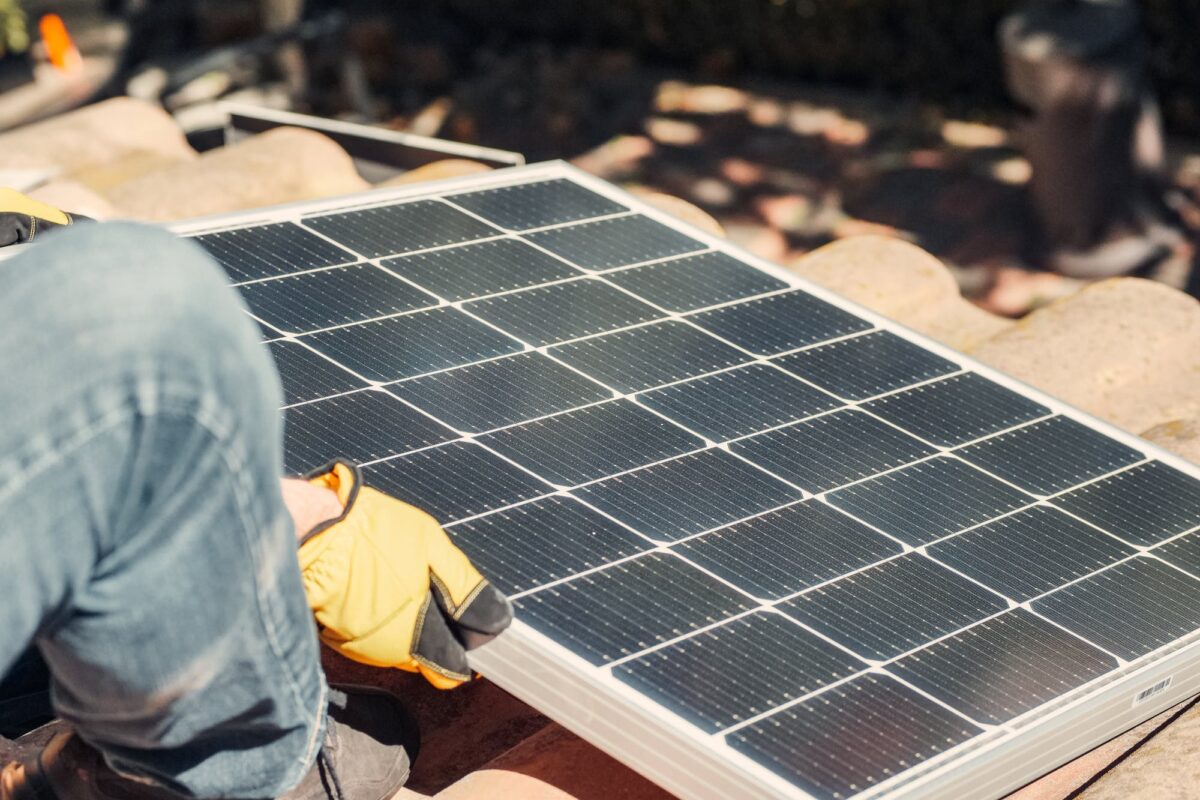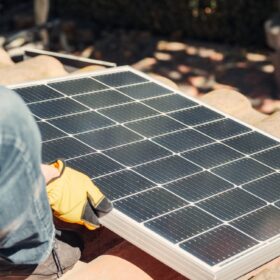Renewable Properties, a developer and investor in small-scale utility and community solar energy projects in the U.S., raised $30 million from funds managed by CarVal Investors, an alternative investment fund manager. Aaron Halimi, founder of Renewable Properties, said, “We plan to expand our efforts in the Northeast, in our home state of California, and continue to incorporate energy storage solutions into our projects.” The firm expects to start construction on 50 MW of solar capacity with 30 MW of that capacity achieving commercial operation by the end of this year.
The U.S. DOE announced $19.8 million in funding for sodium-ion battery developer Natron Energy as part of the ARPA-E SCALEUP program. The project aims to ramp up production of Natron’s Prussian blue electrode sodium-ion batteries by 30x. The initial product is an 8-kw, 50-V battery tray for use in data centers. In July, Natron raised $35 million in series D funding led by ABB Technology Ventures, NanoDimension Capital and Volta Energy Technologies. along with Chevron, Khosla Ventures, Fluxus Ventures and Prelude Ventures.
Aqua Membranes raised $2.1 million for its 3D-printed spacer technology for water filtration led by Clean Energy Ventures and Pentair, a water treatment company. The water filtration technology integrates into existing reverse osmosis systems to increase system capacity, lower capital costs, and reduce operating costs.
Carbon accounting and sequestration
Pachama, a forest carbon sequestration monitoring startup, raised $5 million led by Breakthrough Energy Ventures along with Amazon Climate Pledge Fund. Other corporate investors include Groupe Arnault’s investment arm, Aglaé Ventures, Airbnb’s alumni fund, AirAngels, Serena Ventures (tennis player Serena Williams’ investment vehicle), Lowercarbon Capital, Third Kind Ventures and Xplorer Ventures, according to Techcrunch.
GHGSat completed the first portion of Series B funding, raising $30 million led by Investissement Québec along with OGCI Climate Investments, BDC, FSTQ, Space Angels, and Schlumberger, bringing its total funding to $55 million. GHGSat provides high-resolution greenhouse gas monitoring from space and will be the only emissions monitoring company with its own satellites, according to Via Satellite.
Clean energy SPAC surge
Going public through a SPAC is the exit method of choice these days for venture-funded startups, cleantech and otherwise. (A SPAC as a shell company that raises money through an IPO to in order to buy a private operating firm.)
EV charging company ChargePoint is “nearing a deal to go public through a reverse merger” that could value the company at more than $2 billion, according to Reuters. ChargePoint investors include AEP, BMW, Braemar Energy Ventures, Chevron, Daimler, Clearvision, GIC, Linse Capital and Quantum Energy Partners. ChargePoint’s network is one of the largest EV charging systems in the world with 114,000 charging points in Europe and America. The acquiring entity is Switchback Energy, a SPAC that raised $300 million in an IPO last year.
Aspiring auto makers such as Nikola, Canoo and Fisker, hungry for growth capital, have gone the SPAC route.
And two battery companies are set to go public via merger with a SPAC.
QuantumScape, a secretive, well-funded solid-state battery builder looking to win the EV drivetrain race is going public via a reverse merger with Kensington Capital at an enterprise value of $3.3 billion. The startup aspires to produce solid-state battery cells, “starting in 2024, for VW’s electric vehicles, and eventually for other carmakers,” as per reports. QuantumScape is backed with more than $1 billion from investors including Volkswagen, Bill Gates through Breakthrough Energy Ventures, Khosla Ventures, Kleiner Perkins, the Qatar Investment Authority, Shanghai Auto, Continental AG, Prelude Ventures, Lightspeed Venture Partners and Capricorn Investment Group. QuantumScape raised another $500 million from institutional investors ahead of the SPAC merger news, led by Fidelity Management & Research.
Eos Energy Storage is a zinc battery developer with the chance to go public via a merger with B. Riley Principal Merger Corp II (BMRG), a SPAC listed on the New York Stock Exchange. Eos claims its zinc technology, twelve years in development, is a safe, scalable, and recyclable alternative to lithium ion.
This content is protected by copyright and may not be reused. If you want to cooperate with us and would like to reuse some of our content, please contact: editors@pv-magazine.com.








By submitting this form you agree to pv magazine using your data for the purposes of publishing your comment.
Your personal data will only be disclosed or otherwise transmitted to third parties for the purposes of spam filtering or if this is necessary for technical maintenance of the website. Any other transfer to third parties will not take place unless this is justified on the basis of applicable data protection regulations or if pv magazine is legally obliged to do so.
You may revoke this consent at any time with effect for the future, in which case your personal data will be deleted immediately. Otherwise, your data will be deleted if pv magazine has processed your request or the purpose of data storage is fulfilled.
Further information on data privacy can be found in our Data Protection Policy.